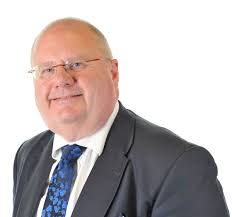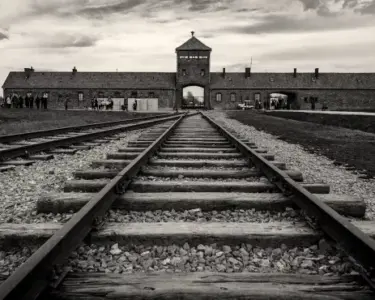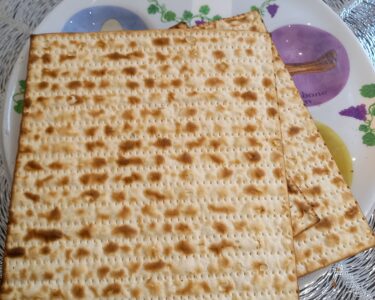‘December marks two very important days in the calendar – International Day of Commemoration and Dignity of the Victims of the Crime of Genocide – December 9 and International Human Rights Day – December 10.
The Holocaust is considered to have given rise to our conceptualisation of the term “genocide”, which was coined during the Second World War, in large measure as a response to the crimes of the Nazis and their collaborators. The Holocaust is an important starting point and the foundation for studying genocide.
This year, the United Nation’s will focus on the role of sport in promoting peace and inclusion. Around the globe, the power of sport is being harnessed to support agendas for peace, development, and, increasingly, the prevention of risks of atrocity crimes.
This year’s theme also affords us an opportunity to remember the Jewish sportsmen and women who were murdered during the Holocaust – their sporting prowess and Olympic success did not save them from the death camps.
December 9 is also a chance to recognise those individuals who were saved by their sport – men like Eric Eugène Murangwa a former Rwandan professional footballer.
Sadly, the fate of Jewish Olympians received scant attention until Agnes Grunwald-Spier published her 2016 book, “Who Betrayed the Jews?” The work included information on 30 Jewish Olympians murdered during the Holocaust.
One of these heroes was renowned skier Bronislaw Czech, who represented Poland in three Olympic Games and later ran one of Poland’s top downhill skiing schools. When the Nazis began implementing the Final Solution, Czech’s fame worked against him. At age 32, he was arrested and among the first prisoners sent to Auschwitz. There, he was offered freedom in exchange for training German youth in skiing but refused the proposal. Czech died in Auschwitz.
Today, millions of us around the world are focused on the football world cup in Qatar but let us not forget Eddy Hamel, born in New York, but who grew up in Amsterdam. In 1922, Hamel became the first Jew and the first American to play for the legendary Ajax Football Club. For eight years, he was the pride of Jewish Amsterdam, refusing to hide his Jewish or American roots.
Twelve years after retiring from Ajax, with the Netherlands under Nazi occupation, Hamel was arrested and sent to do hard labour at Auschwitz-Birkenau. After four months, he failed a work “selection” and was sent to the gas chambers.
Sport did not save the Jews of Europe but during the 1994 Rwandan genocide against the Tutsi – football saved Eric Eugène Murangwa’ s life. His talent was quickly noticed and he became one of Rayon Sports’ – a famous Rwandan football club – best loved players – a fact that would later save his life.
When the plane carrying the President of Rwanda was shot down on 6 April 1994, Eric had been watching a football match at a bar. That day would be the last time he would see many of his friends, colleagues, and family members, including his seven-year-old younger brother Irankunda Jean Paul. Eric’s home was soon swamped by five armed men searching for weapons supposedly hidden on the premises. Refusing to believe his explanation that he was a player for Rayon Sports, they threatened to take his life unless he could prove it. Eric pulled out an old photo album full of team photographs thus saving himself and those he was with.
What happened next was both risky and audacious. Eric appealed to Rayon Sport board member Jean-Marie Vianney Mudahinyuka, otherwise known as Zuzu, a notorious leader of the Interahamwe militia – a man subsequently imprisoned for his role in the genocide. This unlikely character became Eric’s saviour not once, but twice. Why? Zuzu’s passion was Rayon Sports.
Football saved his life. It transcended ethnic differences and ultimately gave him hope for the future. It is this faith in the game that led Eric to establishing the organisation Football for Hope, Peace, and Unity. It uses football as a tool to promote tolerance, unity, and reconciliation among Rwandan youth to prevent tragedies like the 1994 genocide from occurring again in the future.
We must recognise the power sport in genocide prevention but also the importance of Holocaust education to make a difference. Comparing the Holocaust to other genocides is a means to alert young people to the potential danger for other genocides and crimes against humanity. It can strengthen an awareness of their own roles and responsibilities in the global community. That’s why it is important to invest in teachers. The UK has a proud record when it comes to Holocaust education. UCL’s Centre for Holocaust Education is the only specialist institute supporting teachers on Holocaust education in the classroom, using the best in contemporary research. Their Beacon Schools initiative helps teachers to deepen students’ understanding of the Holocaust so they can think for themselves. The success of the programme has led to Samantha Hunt MBE (Sandhurst School), Andy Lawrence MBE (Hampton School) being recognised for their outstanding contribution to teaching and learning about the Holocaust and genocide.
In the words of the International Holocaust Remembrance Alliance, we should renew our commitment to a world that remembers the Holocaust, a world without genocide.’
Lord Eric Pickles, United Kingdom Special Envoy for post-Holocaust issues and Co-Chair of UK Holocaust Memorial Foundation
- View and download the new and updated IHRA guidance and recommendations
- Find out more about the UKHMF work and plans for a Holocaust Memorial and Learning Centre
UCL Beacon School Case Studies: Marking Genocide Awareness Day
- Royal Wootton Bassett Academy, Nicola Wetherall MBE
- Bedminster Down School, Caroline West
- Hampton School, Andy Lawrence MBE




